#queue me in the air
Text
jason todd is the kind of guy that would hold your hands while he eats you out
#no but imagine him looking up from between your thighs#and he just goes to grab and intertwine your fingers with his#screaming and crying and sobbing and punching the air#why can’t he be real#and mine ):<#. . . jason todd 💭#. . . katy’s ramblings 🪐#. . . queue can’t afford me 🪻#dc x reader smut#dc x reader#dc smut#dc#dc comics#jason todd#jason todd x reader smut#jason todd x reader#jason todd smut
311 notes
·
View notes
Text
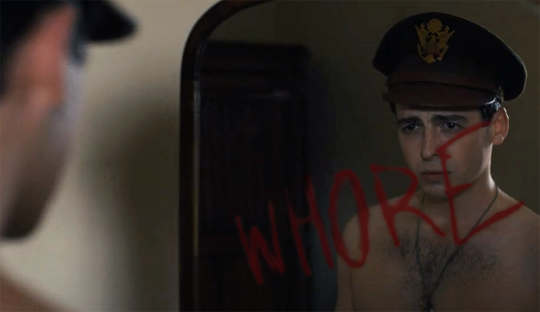
↳ inspired by @ww2yaoi's post
#this is so rough and so bad but i never claimed graphic design was my passion lol photoshop Taunts me#anyway. final joke of mine of the night (morning. i put it in the queue)#masters of the air#hbo war#e7#harry crosby#make no mistake- i'm still a croz girl#masters of the air spoilers#mota spoilers#i'm beyond happy he had a mirror scene lol what are the chances?!#laffs
290 notes
·
View notes
Text
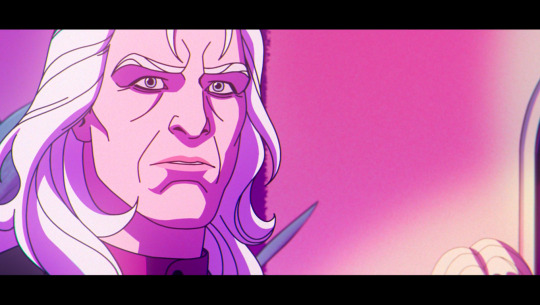
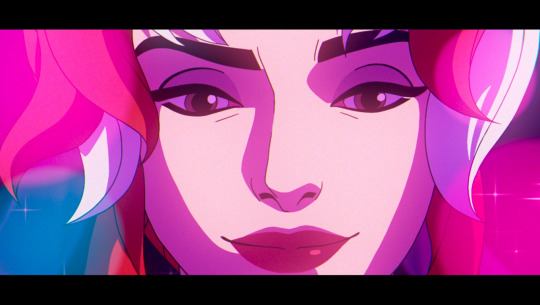

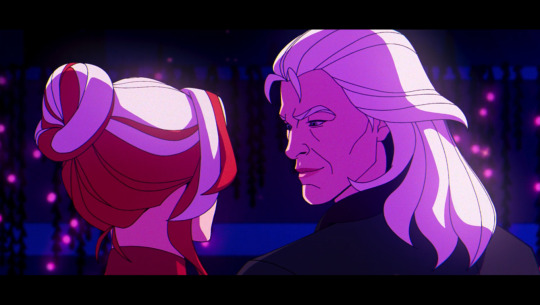
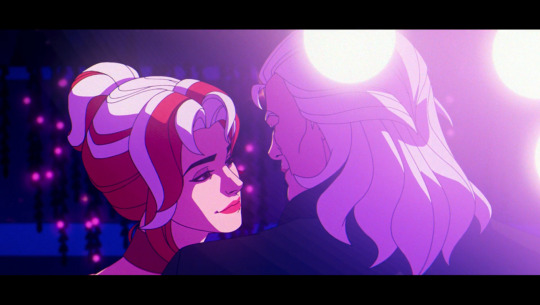

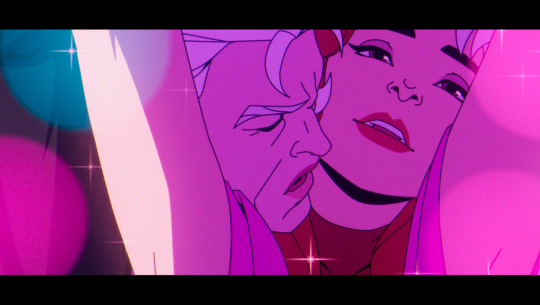
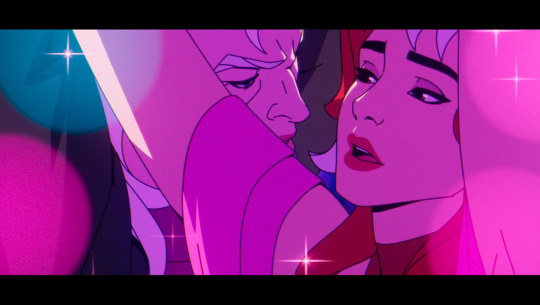

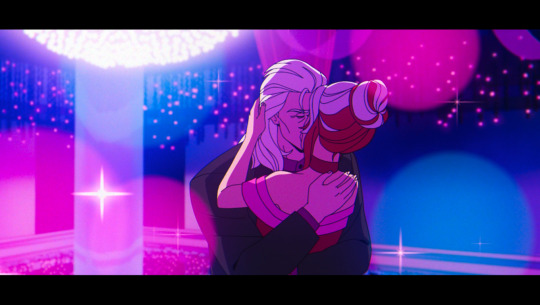
it was literally their moment and they just let us watch
(if you need me i'll be marinating in this for the foreseeable future)
#magneto#rogue#rogneto#rogueneto#IT WAS SO DIFFICULT TO PICK ONLY 10 IMAGES. SOSOSOSO DIFFICULT. EVERYTHING ABOUT THIS SCENE WAS FUCKING SUBLIME.#thank you to the person who pointed out the bg music is ace of base 'happy nation' ;wwwwwww; SUCH A GOOD SONG FOR THIS#okay but for real never have i had a stronger 'GOD I WISH THAT WERE ME' moment#magneto can we all form a queue to dance with you romantically in the air while an audience watches.............#their body language. their HANDS. OLD MAN WHAT ARE YOU DOING WITH YOUR MOUTH AND YOUR TONGUE BY HER NECK#no word of a lie ive probably watched this scene 200 times today. new comfort media. inject it directly into my veins.#my husband laughing at me as i rewind and play over and over again from the other side of the room#my fave fave FAAAAVE part of this animation is the lil pan they do#the one between mags and rogue and the lyric 'where the people understand and dream of perfect man'#THERE IS SOMETHING SO SOFT AND ROMANTIC AND ADORING ABOUT IT#disintegrates like a sopping wet piece of bread. thank you animators who worked on this scene#i feel like i am burning with the excitement of a thousand suns over this#xmen 97#leigh's magneto hours
248 notes
·
View notes
Photo


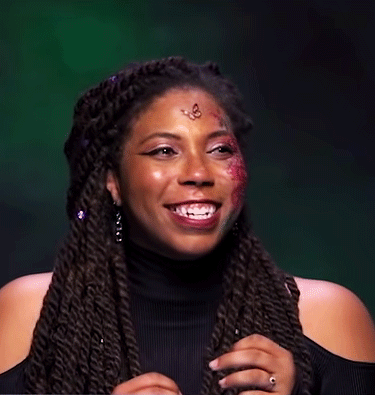
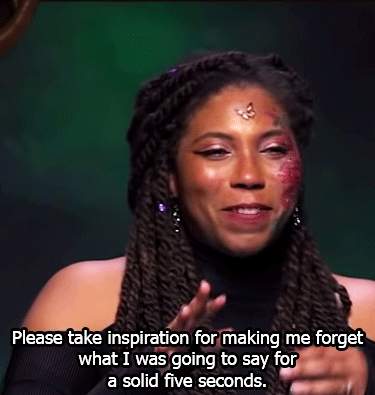

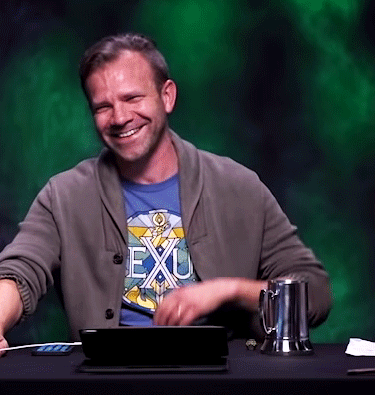
Liam’s funniest moments on Exandria Unlimited (∞)
#liam o'brien#aabria iyengar#exandria unlimited#orym of the air ashari#excuse me sir?#HAHAHA the cheeky look on his face#critical role#critical role cast#my gifs#i'm killing someone queue please
2K notes
·
View notes
Text

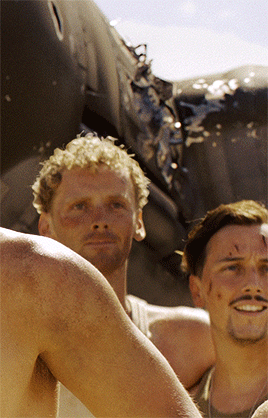
#masters of the air#motaedit#hbowaredit#jack kidd#james douglass#doug x kidd#and regrettably: some guy's shoulder#hbowar camera crews have done worse to me#goblin fort appreciation society#moving this set up the queue due to the popularity of the last entry in this series (they deserve it)#edit#**
76 notes
·
View notes
Text
I'm not even touching on the Georgie thing by the way. It's too much. My brain is broken, no theories.
#for once i managed to listen to the episode before 1am but its not going to do me any good#im going to be up all night freaking out anyway#the magnus protocol#8 running on empty#tmagp spoilers#my magnus protocol stuff#original post#georgie barker#queue cause i'll be at work when the episode airs
70 notes
·
View notes
Photo






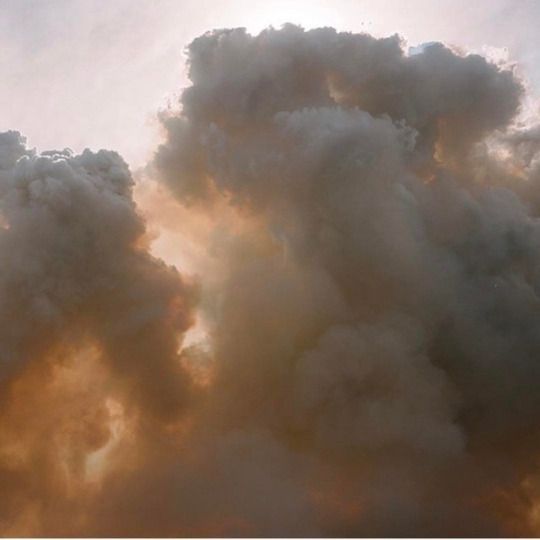



AIR .
#for some reason it's difficult for me to make air as a concept not look .. avant#this isn't that though i had to fight myself#anyway#air#elements#mb#mine#my gif#queue
159 notes
·
View notes
Text

simple luciel from @uroboros-if lineart to complete my list of stuff to draw this weekend sabfjkgfgsg
#i remember foaming at the mouth when i first saw their art portrait??????#i still sometimes look at it and go like#damn shts good#same goes for everyone else#the artist did so amazing#but alessi ngl kinda has my heart#queue that one debby ryan hair tucking gif#actually#no both luci and alessi have me on a chokehold#sure im being deprived of air but thanks ig/jk#also uroboros is a great if#im so glad for the update#time to be the btch god for no reason
64 notes
·
View notes
Text

Rain gets groped by the hot rando he’s been obsessing over and his foremost concern is that Payu is not leveraging his hotness effectively enough
#the whole first ep is just me with my head in my hands waiting for his next dumbass activity#god he’s so STUPID I love him 😭😭#literally everybody say thank you to Payu for getting him off the streets before he can wreak any more havoc#love in the air#payurain#why don’t queue stay
280 notes
·
View notes
Text

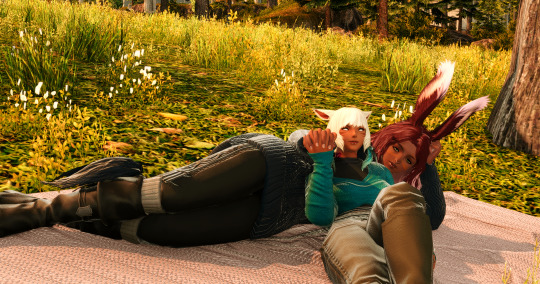
🍂🌅💞
#sorry i am out of captions#it only just occurred to me that it's probably not as nice watching a sunset when there's clouds#but its also probably not as nice watching a sunset when you're blind#this is just an excuse to hang out!!! they have to get fresh air! if i had more minions available the picnic basket would be here too#also i wasnt going to post these but the queue for the test server is at 1653 rn#oc: corisande ymir#gpose#ffxiv
27 notes
·
View notes
Photo
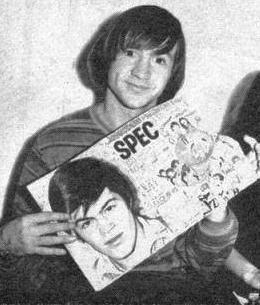

You might recall older posts featuring audio and/or quotes from Peter's June 1983 interview with NPR (such as here, here, here, and here). There are also some audio snippets on this fan page's YouTube channel. But since the full audio is too long to upload to YouTube, I transcribed the full audio interview, and thought I'd share that transcript here for anyone who might be interested in reading this snapshot of a moment in time.
Terry Gross: "Um, you wanna wait for the coffee before we start?"
Peter Tork: "Yes, let’s wait for the coffee."
TG: "Good. It’ll be a couple of minutes. We’re waiting for the coffee. Yeah."
PT: "Push the button that says stop. [long silence] Does he have to get a key to stop the tape machine? (chuckles)"
TG: "So, soon as the coffee’s ready, we’ll…"
PT: "We’ll just hit it. (Speaks louder) Okay, now, the thing about the songs is, snatches, this is that, the piece of this, that’s all right, but if you put on songs, then I’m just gonna be the whole..." [recording cuts off].
TG: "Are you comfortable talking about The Monkees?"
PT: "It’s a mixed bag. Sometimes I am. Actually, to tell you the truth, I’m not comfortable but it’s not because I… about talking about The Monkees, it’s because I haven’t had a cigarette since yesterday."
TG: "Do you wanna light one up?"
PT: "Noooo."
TG: "Oh, you’re trying to stop."
PT: "Well, I’m trying to put it off."
TG: "(laughs) Savor it a little."
PT: "Put off the next cigarette for, well, hopefully for a very long time, but just not smoke one right now."
TG: "Okay. How did you first hear about the Monkees audition?"
PT: "Stephen Stills called me and said, 'Go try out.'"
TG: "He auditioned?"
PT: "I don’t know whether he auditioned exactly, or whether he had just met the producers socially, but… Steve was a friend of mine on the Village streets in early 60s. He, as a matter of fact, hit town and became instantly known as that guy who looks like Tork, which was my name in those days. And I ran across him on the street. I said, 'I know who you are. You’re the kid who looks like me.’ He said, 'I know who you are. You’re the kid I’m supposed to look like.’ Anyway, so we cut back again to a couple of years later, and Steve knows this guy, and it turns out to be Bob Rafelson, one of the producers, who says to him, in his own inimitable way, 'Well, we like ya a lot, but your hair and teeth are wrong for our production, they ain’t photogenic. You know anybody who looks like you who’s got good hair and teeth?’ Stephen said, 'My friend Peter.’ And so Stephen called me and said, 'Go try out for this thing.’ And I said, 'Yeah, yeah, sure, Steve, yeah, right, instant success, gimme a break.’ And he said, 'No, no, really, try out.’ 'All right, all right, all right.’ So, you know, I took my hard-earned savings, which I’d been making washing dishes at this club in southern, way southern California, fifty miles south of Hollywood, and took a bus up to Hollywood and back down again, and up and down for auditions. And eventually won the part."
TG: "What was the audition like?"
PT: "Well, it started off with just a huge gang of kids in the office. The office had one secretary type and two offices, one on either side. You went into which ever one was free next and if they didn’t like you, that was it. If they did like you, then you went into the next guy’s office when he was free, and if he liked you, then they sent you to this — they gave you a, what they called a personality interview: they just had the cameras running on the set of I Dream Of Jeannie or something, and they asked you questions. And then, if they thought that was… that was actually also, I think, a photogenic test — photo genesis test (chuckles): Were you born in the camera? But after that, then came the regular screen test, which was scripted, and they had a set there, and a director, and he said, 'Do this and do that, and don’t do this and do this other thing.’ And they had, by that time, had gotten down to eight guys, and they divided them up into teams of two, and each one of them did the screen test with the script and the stage actions: 'Hey, man, what’s really the matter?’ 'Aw, I don’t know, it’s about Celia, you know.’ 'Yeah, yeah, I know, man.’ Like that."
TG: "So that was the audition."
PT: "That was, well, that was the whole audition process."
TG: "Did, did they test you for chemistry with each other, since this was a band that was put together by producers?"
PT: "No, they made, they made their assumptions and shot. They said, Well, we need one of these and one of these, two from column A and one from column B."
TG: "Yeah, so, so what were the types that you were supposed to fit?"
PT: "Well, I actually think that what they did… They didn’t just say, 'Actually, we need one of each of these.' What they said was, 'We’re going to need a bunch of qualities and pretty much the qualities… and we need them somehow or another combined among these guys.' I think basically one of the reasons I was chosen was — I can think of two good reasons why I was chosen. One is that I brought that character of the dummy to the audition. And they needed an odd man out, a guy who is like a little, you know, slightly turned from the other guys; straight-ahead rock and roll band, and one kind of simpatico, simplicico kind of a guy, and that was my character. And so that was one of the reasons why I was chosen. The other reason I think I was chosen is because I did the screen test in one take. At least, I thought it was impressive, I hope they did, too. In any case, it was like that, I got — I was the odd man out, Davy was the little British or romantic, and then two other guys, one of them light and crazed, and the other kind of dark and serious. And so that was the way it was balanced out."
TG: "Were you asked to watch Beatles movies or listen a lot to Beatles records to develop the kind of sound and image that they had?"
PT: "No."
TG: "Were you self-conscious of The Monkees being considered to be like a Beatles imitation band?"
PT: "Well, I — there was a lot of criticism to that effect and I think I took it to heart, and now I think I took it to heart too much. Because, really, it was, I think in some ways, Micky and Davy had a healthier attitude about it as I look back on it now. They didn’t go for that imitation this or organic that, you know, they just read their scripts, they came to the studio and read their parts, and that was all they ever cared about doing. You know, 'Give me a part and pay me at the end of the week.’ That’s all. And if I’d had that attitude, I would have been a lot happier. I would have been able to not worry. Because I heard a lot of different criticisms — and it all sounded as thought it was coming from one seriously important source, to me in those days. That was how I was. And I now see that each person had their own little carping to do. For instance, nobody ever said, to, in my knowledge, in those days, that we were a bunch of talentless actors. Everybody said we were talentless musicians, but not talentless actors. Because in Hollywood, we were respected pros doing what we had to do, cranking out this stuff week in and week out. You got it out, you were a pro; that was all anybody cared about in Hollywood. And so I said, Well, at least we had that much respect.’ I later find out that the struggling New York actors crowd are calling us talentless actors. But what I heard was the struggling musicians crowd in L.A., and all of the would-be-goods that are going, Well, these guys don’t play their own instruments,’ and all that… horseradish."
TG: "You find that the rap has changed about the program? Because so many people look back on it affectionately now as being, like, a real pop piece from that period?"
PT: "I don’t — it’s a good question. I don’t know whether the rap itself has changed, but I’m hearing more good rap about it. Which maybe comes to the same thing."
TG: (laughs)
PT: "You’re laughing because I spilled my coffee."
TG: "Because you spilled your coffee, yeah. Did the studio control your personal life or your image? Like, was it okay to have girlfriends?"
PT: "Oh, sure."
TG: "Um, was it okay to be seen with them?"
PT: "It’s okay to have sex. (laughs)"
TG: "(laughs) You never know with studios, like how much control they’re exerting or what they want you to look like to your public."
PT: "Well, they wouldn’t let us criticize the war in Vietnam."
TG: "Really?"
PT: "Really."
TG: "Did you want to?"
PT: "Yup. I actually did, to a New York Times reporter, and they made me, asked me very seriously, very strenuously, to call her and ask her to withhold that section of the interview. And I did, and she did, she was very kind about it. But it was… I look back on it and it seems kind of silly, but I think that the whole point of the project was: don’t make waves. Look like revolutionary, look like something new, but don’t make waves. On the other hand, in the experience of an awful lot of our audience, we were something new. So I can’t knock that."
TG: "Do you think you would have been more of an activist if you weren’t part of TV at the time?"
PT: "I don’t know. I never did march, you know, I never did carry a sign. The only thing I ever did was a sit-down strike someplace. Not much. You know, I never really did get into activism, and I don’t know whether it’s just because I’m a flat-out coward or I have some deep understanding of the cosmic truth of the fact that it doesn’t do any good or whatever, in whatever case, that’s just — that’s what it is, I don’t do it much."
TG: "Bob Rafelson, who was one of the producers of the show, is now also known as a director of such films as Five Easy Pieces. Have you kept in touch with him at all?"
PT: "No."
TG: "Did you, like, go to see his other movies?"
PT: "I happen to have seen some of the other movies… Of course I saw Five Easy Pieces because we were still associated with those guys as that movie was being put together. I mean, Easy Rider, and then I saw Five Easy Pieces because it was Jack Nicholson who helped us make the movie Head, the Monkee movie. And, and I think, I think Jack is super. And of course, one of the things that I — I have a feeling about Jack because I see the crazy guy that he portrays on screen and I see him in life and he’s still got that, that something, you know, out of bounds is still there, and still, in his actual character, he is one of the great open-minded, open-hearted sweeties that I know. And to see a man with that, these vast, seemingly vast, differences, working and playing these crazed people on screen, and still — I mean, the reason that he’s as big a star as he is, is because he does have the capacity to be abstract about his own work. You should have heard, you should have seen what it was like working with him. He’s a great technician, which is one of the great attributes. You can’t be a crazy maniac like that and not be a good technician if you want to have a career. Because you’ll just go out of bounds without any kind of viewing. And… wow, how’d we get off on that?"
TG: "Did you want to pursue acting after The Monkees?"
PT: "I didn’t care what I did. I, I’m an entertainer. If I act, or play music, or like I’m doing tonight at Godfrey Daniel in Bethlehem, if I do that… I have a rock band now, it’s called The Peter Tork Project and we’ll probably be swinging through here. And we play thumping rock and roll, we just really beat the bejesus out of things and really stomp. And we have a hard time getting people to believe it, because I do my acoustic act and it depends almost entirely on rapport, and I don’t rock out too much because how much rock and roll can you do on an acoustic guitar or a piano? But… I do, so it’s very, a kind of quietish show, it’s a nice, mild show."
TG: "What kind of material do you play solo?"
PT: "Well, I do essentially… it’s like there’s an overlap. I do a large part of the same material in both shows. I do do some old Monkees songs, just because I know people want to hear that kind of stuff. And I do do some oldies, ‘50s rockers. And with the band, then we go on to the more heavy rock and roll, the band plays that and rockier stuff. And acoustically I play that and farther out stuff, more ballads, some… a J.S. Bach piece on the piano, one, count ‘em, one. And… like that. So, it’s old, old tunes; I play some more introspective stuff in an acoustic set."
TG: "What kind of music do you listen to when you have time to listen?"
PT: "Baroque, reggae, current pop from time to time if I happen — I don’t buy current pop records but I get them from my family for gifts and so on. I like Men At Work, I got that for Christmas, I thought it was great."
TG: (laughs)
PT: "That kind of stuff. The Police. Good — I like good music in almost every form. About the only kind of music that I really have a very hard time taking is opera, and Mozart. For some reason, Mozart I think is awful. I don’t know how come he’s so revered and so treasured. Out of about every dozen pieces that I hear, I think one is inventive and interesting, and the other seem to me just to be scales with flourishes."
TG: "Well, I’ll send you all the angry mail when we get it. (laughs)" PT: "No thanks!"
(laughter)
TG: "Peter Tork is my guest, if you’re just joining us, who got started in, um, and came in very young when he was in The Monkees."
PT: "Wait a minute, wait a — that’s not my start! I was playing in the Village for two and a half years. (jokingly) Made his mark in the entertainment industry, you might say, that, that would be fair."
TG: "What kind of material were you playing in the Village?"
PT: "Folk songs. Just the old folk songs, and 'Blowin’ In The Wind,' and protest songs and folk songs, five-string banjo stuff."
TG: "Word was on The Monkees show that it was really studio musicians who were doing the instrumental part while The Monkees were actually doing the singing. Is that true?"
PT: "The first two records. After that, we did a record all by ourselves, almost all by ourselves. And then after that, we went into a mixed mode, where it was a professional drummer and I’d be playing bass, or, you know I’d be playing guitar and we’d have a professional bass player, or something like that. At the outset it was — and the thing was that nobody was sure whether we could play, nobody had any idea of how much time. I mean, they really, you know, when you hire a professional studio musician, you know what you’re getting, you know that you can knock off a complete track of two tunes in three hours, maybe more. Just take them in, put the music in front of them, and hit it. And say, More of this, less of that, and okay, you got it. And that’s the way it goes. And they just didn’t know what it was like, and so because our services were needed most critically for making the TV series, it was just regard… also, Donnie Kirshner didn’t like to have people who couldn’t be told what to do. As a matter of fact, you may have noticed that, after he and The Monkees parted company, he decided that The Monkees were not plastic enough for him, went and did the Archies."
TG: "Did he organize them also by audition?"
PT: "The Archies? You’re kidding."
TG: "I don’t know the whole folklore of the Archies."
PT: "You know — have you ever seen an Archies comic book?"
TG: "Yeah, oh! Of course. What am I thinking? Right."
PT: "The Archies were those comic book characters, and whatever singers were willing to do what Kirshner paid them to do, did the records. And after that, they left. There were never any Archies, there never were. (laughs) Like I said, The Monkees were too real for Don Kirshner."
TG: "Did you think of Kirshner as being an absurd character?"
PT: "Yes."
TG: "But powerful."
PT: "Well, in his time he was powerful enough. He just was one of those characters whose set up and system happened to jibe with the commercial demand of the times. I don’t think Kirshner knew what he was doing at one level. At another level, he knew perfectly well what he was doing. He was… he listened to music, and he created music that he liked, and it sold millions to thirteen- and fourteen-year-olds."
TG: "I’m getting the feeling that you were in a kind of awkward position of kind of understanding what kind of manipulation was happening and at the same time being willing to go along with it because it was good for your performing career."
PT: "Well, I don’t know whether it was good for my performing career. The reason I went along with it is because I never took any initiative of anything on my own account. Really basically, I just did wherever I was pointed. You know, Stephen said, ‘Go try out,’ I tried out. They said, ‘Come here, do this.’ I did that. ‘Sign here.’ I signed there. And really, I’m just — I’m only recently now getting to the point in my life where I’m beginning to say, ‘Let me figure this out. What is it that I really want? What steps do I have to take, and what…’ And even then, you know, I have to recognize that I have no control over events. All I can do is say, ‘This is the kind of thing that I’d like, and this is the kind of thing that I have to do to make my chances better.’ And then I do that, and then I have to just let the results be whatever they are, to get into trying to make results happen, you know. As a matter of fact, in some ways that was one of the problems that… when I broke up with The Monkees, I left because I couldn’t get those guys back into the studio to do the same kind of thing that we’d done on our third album, which was Micky on drums, Michael on guitar, me on piano, our producer on bass, Davy Jones playing rhythm sections, and then hiring the occasional string player or something like that. Micky said, 'You can’t go back.' He thought he was Thomas Wolfe. And Davy said, 'I don’t wanna be banging a tambourine day in, day out. You guys, it takes you 54 takes to get your parts down, I’ve got my part down first take. Just bang a tambourine. I’m sick of banging a tambourine, Peter, I hope you don’t mind.’ 'Okay, Davy.’ And so we went into this mixed mode. But I wanted the guys to be a real, live group. I had this Pinocchio/Geppetto complex, you know. And when they wouldn’t go for it, I really — it burned me out. And there I was being burnt out because things wouldn’t happen my way, and it was a case of His Majesty The Baby, trying to, you know, have his own way. If I had had the good sense God gave me, I might have noticed that I was having my own personal way, that is, in the sense that I wanted for myself was happening. I could be in the studio playing bass or guitar or piano on every single cut The Monkees did from then on if I wanted to, but that wasn’t enough for me, I wanted things for other people to do, otherwise I wanted to produce and direct and write the script for the whole shebang."
TG: "Why did you want everyone to be playing? Because you thought it was more honest? Or was there another reason?"
PT: "I thought it was more honest, I thought it was a bigger deal, I wanted a real live group, I thought that this was the way things were done; I was a victim of the same illusions that other people were criticizing us for shattering in their lives. In other words, you’re not a — you don’t just do this all by yourselves, you’re not an organic group, you don’t this, you don’t that, and how could you, you’ve broken my heart.’ As if, you know, as if we’ve broken their heart, as if it wasn’t the shattering of false illusions. If you hang on to false illusions, of course your heart’s gonna get broken."
TG: "Did you try to organize the band to maybe rebel against —"
PT: "Mh-hm."
TG "— the producer."
PT: "Well, we did organize the band, and we did get — rebel against Don Kirshner, but it was Mike and me wanting to — each for reasons of our own — and Micky and Davy went along. And then we did the thing, and then everybody said, 'Well, that’s enough of that, thanks very much.’ And I went, 'No, no, no, you’ve got to do it the way we planned, the way I had in mind for us to do,' you know. The fact that everybody went along with what looked like my plan obscured my vision of the fact that everybody was doing what it was they thought they had to do for reasons of their own. And when their reasons changed, and their behavior changed, and my plan didn’t change, I went after them screaming to try to mend my shattered illusions. What a jerk."
TG: "(laughs) How did being a television star and a recording star affect your schooling and your ability to have friendships and things like that?"
PT: “I don’t know that it affected my ability to have friendships. Basically I don’t think I knew how to be or have a friend beforehand, and I don’t think I learned while I was in that operation. I mean, I had some good buddies, you know, but that wasn’t the same thing, I didn’t really understand. There was only one person in my life that I could turn to when I was hurting who happened somehow to know what it was, what it took to stop me hurting, and that was a woman named Karen Harvey, who later joined me on the West Coast. And I thought, well, here’s a friend come to join me and this will be a real friend. And we were pretty good friends, I guess, but there wasn’t any that, you know, that — I didn’t know what a friend did in a sense of how, on a day-to-day basis, do you maintain your friendships, do you go out of your way to make sure that things are nice and right and, you know, the kind of work that a friendship takes. You don’t just have a friendship without work. And I didn’t know that. And I’m not so sure I know it now. I can say it, but I don’t know if I have, I have the real gut understanding it takes. But in any case, so that… And my schooling, the reason that I was in entertainment was because I’d flunked out of college for the second time, and I never did finish and get a graduate — I mean, I never did get a bachelor’s degree. And to this day, I haven’t got one and I don’t know whether I ever will."
TG: "Well, you don’t exactly send resumes around when you’re playing concerts. (laughs)"
PT: "No, they didn’t ask me for my degree when they asked me to play Bethlehem. At the Godfrey Daniel tonight in Bethlehem, PA. Those of you who are within driving distance of there, who are within the sound of my taped voice now should hustle out there and take your money so that you can get in."
TG: "Speaking of money — how much profits did people in the band, of The Monkees, have, from the millions of records that were sold, and the TV profits and syndication?"
PT: "We got the usual — we got standard minimum shares of the TV show and the records. We got a raise, a modest substantial raise, some, you know, medium kind of a raise, after about six months they gave us a raise. We always got the standard record deal, which was: the group gets five points, which was five percent of ninety percent, and so we split one and a quarter points, which is, what, one and three tenths percent each person of whatever the going price was. And we get that today. If they sell a record, The Monkees Greatest Hits album is still on the Billboard middle-of-the-road or some — there’s some special chart that Billboard has that we’ve been on for weeks and weeks and weeks and weeks."
TG: "How do you feel about that?"
PT: "Well, it’s money, I don’t care."
TG: "Did you retire as a wealthy young man from the —"
PT: "No. No, I didn’t. I retired as a man with some indeterminate amount of money which somehow indeterminately ran out."
TG: "So, when you left, did you want to be known as the former Monkee or did you want to erase that part of your past —"
PT: "I tried to erase it."
TG: "— and start anew?"
PT: "I tried to erase it completely."
TG: "How do you do that?"
PT: "Well, you just don’t do anything connected with it, just absolutely refuse to have anything to do with it, and… basically what I did was I retreated into — I wound up retreating into Marin County, California, which is just north of San Francisco. And there I worked, I belonged to a worker-owned restaurant, waited tables and was part of the cooperative that owned and operated the restaurant. Nominally owned the restaurant; it was actually owned by this guy whose parents had left him some GM stock, and he bought this thing and the co-op was supposed to pay him to buy him out over the long haul. I think they have done finally, I think it’s now a real workers’ co-op. And I worked there, and I retreated, and nobody said anything to me about my Monkees past except one or two guys said, You know, I’m glad to see you just on the street schlepping around, that kind of thing, which made me feel good. I belonged to a few groups; I belonged to a thing called the Fairfax Street Choir, which had 35 voices in the rock section and was very hard to stage. (laughs) Those little coffee house stages, 35 guys and women. And I also belonged to a kind of second on the bill act in San Francisco called Osceola for a year or so. And that kind of thing. And nobody said anything about The Monkees to me."
TG: "Are you in touch with the former members now?"
PT: "Occasionally."
TG: "I would imagine that some people would be happy to see, like, a reunion. Would you ever imagine that happening? PT: Yeah. The only problem with that is mounting it and making it acceptable to everybody. The problem is, the real problem is that I can’t much see myself going onstage and doing an hour of Monkees greatest hits playing bass and getting offstage. I don’t think that any amount of money would particularly… I don’t suppose that no amount of money, but I don’t think that any amount of money that anybody would be interested in paying me would make me want to do that. I… And I don’t see what conceivable creative project could interest the four of us that would be backed with enough money to make it worth our while to develop any good germ of an idea into something full-blown. I just, I don’t see it happening, I just think that the chances are astronomical against it. It’s possible. We’re all alive. The Beatle reunion is not possible. I’m just reading Lennon’s interview, and he says that thoughts of a Beatle reunion are like going back to high school. Why don’t you go back to high school? When are The Beatles getting back together? When are you going back to high school?"
TG: "Is that how you feel?"
PT: "I — like I said, I would think that any just simple remounting of The Monkees greatest hits songs on a stage would be that, yes."
TG: "Oh, but if you were able to do other material."
PT: "That’s what I’m saying. If I thought that it could be creative and useful and engage everybody to the fullest of their capacities, I would, I would consider it. But who’s gonna, you know, pay for us to have hotels, to keep us supported in the styles to which we are accustomed for the two months or three months that it would take to create, carve, mount, produce and rehearse a show that would involve all of us to the maximum of our new capacities. I don’t think it can be done."
TG: "How do you feel about audiences?"
PT: "What do you mean, (laughs) how do I feel about audiences? What kind of a question is that?"
TG: "Okay, because fans have kind of played it both ways with the members of The Monkees, you know, I think when the TV series was on and when millions were being sold, there were millions of fans who were really adoring. And then when you leave a group like that and everybody wants to hear from you only in that context, it’s probably —"
PT: "How long have we been on that topic, on this? We’ve been a half an hour, we’ve been almost the entire show on that topic."
TG: "What topic?"
PT: "The Monkees."
TG: "Right. So…"
PT: "(gently) So what’s your question?"
TG: "So do you have a mixed feeling about fans and audiences?"
PT: "Well, fans and audiences are different. Audiences come and they catch the show and they like what I do or they don’t, and that’s up to them, and that’s just the way it’s supposed to be, no matter whether I ever was a Monkee or not. And fans… if a fan, if somebody really needs to remember The Monkees and identify with that, I have nothing to say about that because I don’t know what’s going on with them or what chord I may have touched at some point way back when that they still need to strum on themselves. And it’s none of my business."
TG: "So where are you living now?"
PT: "I live in Venice, California, legally and technically. As a business matter, I spend most of my time in New York. I still am a registered voter in southern California, my driver’s license is southern California, I’m married, I have children in southern California, I go back there as often as I can and be part of the family, I just don’t get out there very often, and as a business matter, I spend most of my time in New York. Eighty percent."
TG: "Where have you been doing most of your performing?"
PT: "The New York area these days, mostly. I went to southern Canada, southern Ontario to do a few shows, I’ve been to Boston, I’ve been upstate New York, and I did Pittsburgh a couple, about a year ago, I guess. You know, I operate out of New York basically because you can’t operate out of L.A. You cannot make a living as an entertainer operating out of L.A. Not that I make such a great living operating as an entertainer out of New York, but at least there’s a sense of whatever level I’m on, I can go to the next level and operate on that level for a while. In L.A., you either have to make it or you die. That’s it: you’re either making it or you’re dead. And once somebody has been to the top and come away, you don’t, as far as I see, get much of a second chance in L.A. I tried to knock around as a character, comic character actor for a while, and I got people to: 'Hi, you know, it’s good to see ya,' and they laughed at my jokes, and then they never invited me back."
TG: "Um, I forgot what I was gonna ask you."
PT: "(laughs) A hell of a note for a professional interviewer."
TG: "(laughs) Oh! Do you watch TV much now?"
PT: "A fair amount."
TG: "Do you watch it very critically, having been — and also seeing what kind of roles are available, I imagine…"
PT: "No, no, I don’t watch mass media pop TV much. Hillstreet Blues, that’s about it. The rest of what I watch is CNN, cable news, I don’t know if you get it here."
TG: "We don’t get cable here yet."
PT: "You don’t have cable in Philly? (jokingly) Oh, you poor people! MTV, also on cable, and, um, the odd cosmos show. I, I saw Carl Sagan say astrology had been completely debunked on a scientific basis. And I go, wait a minute. Not that I’m such a fan of astrology, but there’s no scientific proof that — it’s like, anything you don’t like, if you define it the way you don’t like it, you can prove it doesn’t exist. Like, he said, 'The premise is that the stars have a profound influence on life.’ No, that’s not it."
TG: "Do you watch a lot of rock video?"
PT: "I watch a fair amount of rock video, and a few pop, the news, you know. Then I listen to music and I read, and I perform and I rehearse, and I run around and take care of business, and that keeps my days filled."
TG: "Will you be performing tonight at Godfrey Daniels?"
PT: "I’ll be performing at Godfrey Daniels in Bethlehem, Pennsylvania."
TG: "And which instruments will you be playing?"
PT: "I’ll be playing the guitar, the banjo, and the piano. All at once. (laughter) No, no, seriously, folks, all kidding towards one side, I’ll be playing those three instruments, if they have a decent piano in Bethlehem; I didn’t bring my piano with me."
TG: "I want to thank you a lot for talking with us. Thanks very much for being here."
PT: "Well, I’m — it was all right, thank you, and I, I just, I just hope it turns out an audience in Bethlehem, that’s all."
TG: "Thanks for coming."
PT: "Okay." [audio cuts off]
I uploaded the full audio to Google Drive, here.
#Peter Tork#80s Tork#60s Tork#70s Tork#Fairfax Street Choir#Osceola#The Monkees#Monkees#thislovintime transcripts#Peter and Micky#Peter and Davy#Peter and Michael#Don Kirshner#Bob Rafelson#Stephen Stills#et al.#(if anyone is interested in other transcripts feel free to let me know for future posts)#long read#NPR Fresh Air (1983)#can you queue it
30 notes
·
View notes
Text
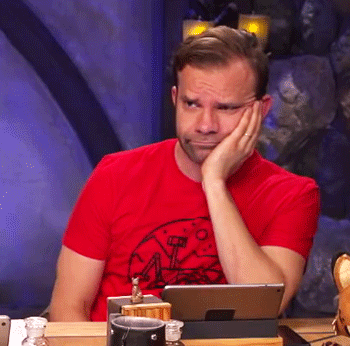
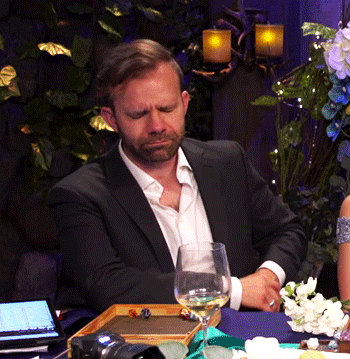
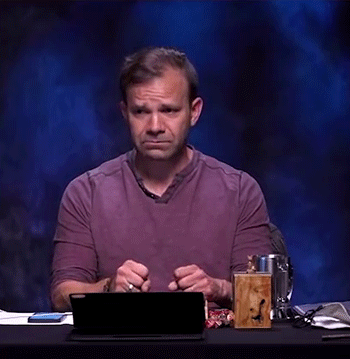
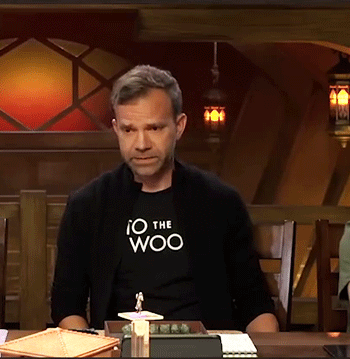

Liam crying/being emotional over the campaigns. ( requested by @samuraiko )
#liam o'brien#they look weird bigger haha if you click on them they're much better quality#his emotions are incredible#if there's been one person to make me cry during these campaigns it's him#i luffs him your honour#my gifs#critical role#caleb widogast#orym of the air ashari#vax'ildan#i'm killing someone queue please
288 notes
·
View notes
Text
Song: "Can't Help Falling In Love" - Elvis Presley
Episodes: 1 - 7
#mota spoilers#masters of the air#motaedit#after hearing this song on sunday i desperately needed an edit#so i took my none existing editing skills and this is the outcome 😅#i definitely didn't do this instead of sleeping#studying or doing my homework😅#not me🤣#okay maybe 🤣#maybe also while i was having a migraine attack🤣#i really hope it isn't too shitty🤣🤣#i have no idea how i did this🤣#quietly logging in and adding this to my queue before leaving again
8 notes
·
View notes
Text


#FLOCKREST. independent, selective, & heavily headcanon-based rito multimuse featuring tulin of the legend of zelda: breath of the wild & tears of the kingdom. established june 2023. doted on by ray!
#loz rp#zelda rp#tloz rp#legend of zelda rp#* roosting / ooc.#hi....i think i have written enough to post this.....support my brand? 👉👈#the MOST effort any of my muses are gonna get from me in graphics at this point#it's been a decade since i started writing! i do not have the muscles for graphic design anymore sdlfjklj#(BUT I BOW AT THE FEET OF PEOPLE WHO STILL DO YOU'RE AMAZING)#honestly though thanks y'all for making my return to this rpc such a pleasant one! i still miss my old friends dearly sometimes#but it's been an absolute blast writing with y'all <3 air smooch mwah!#* songs / promo.#* nesting / queue.
26 notes
·
View notes
Text
Soooooo anyone else shipping Colin/FR3-D1 or is that just me?
#well. me and alice.#the magnus protocol#tmagp spoilers#3 putting down roots#original post#my magnus protocol stuff#fr3-d1 | freddie#colin becher#queue cause i'll be at work when the episode airs#tech support
77 notes
·
View notes
Text
2023 Tumblr Top 10
1. 5,104 notes - Aug 18 2023
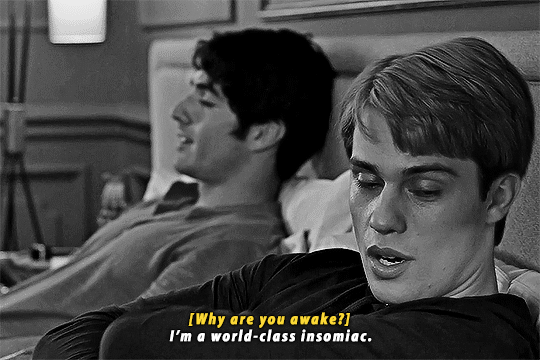
2. 4,753 notes - Feb 11 2023


3. 1,563 notes - Jan 6 2023

4. 932 notes - Feb 9 2023

5. 834 notes - Aug 16 2023
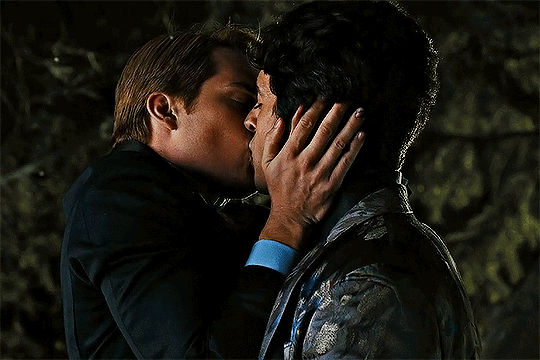
6. 802 notes - Aug 4 2023
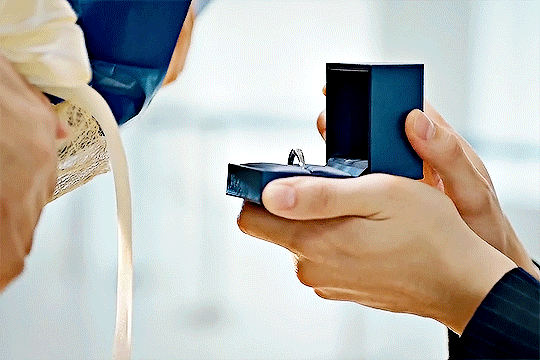
7. 789 notes - Feb 1 2023

8. 733 notes - Feb 8 2023
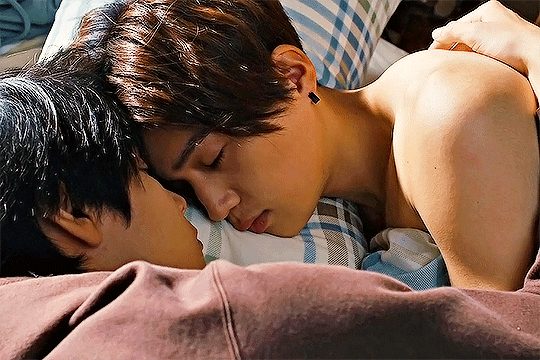
9. 694 notes - Jun 22 2023
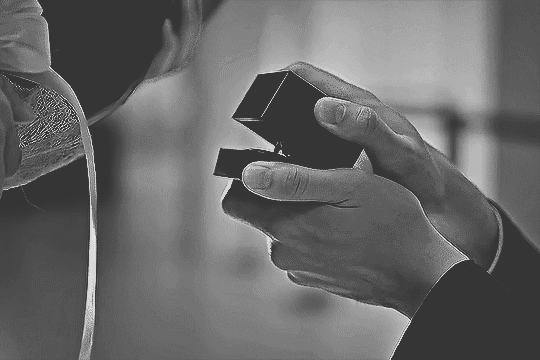
10. 679 notes - Jan 5 2023

Created by TumblrTop10
Even after a year, it looks like the PayuRain brain rot is alive and well lol AlexHenry and HiraKiyoi gave them a run for their money but the weather boys reign supreme XD Cheers to 2024 and more good times ahead 🎉
#tumblrtop10#rwrb#red white and royal blue#love in the air#love in the air the series#my beautiful man#utsukushii kare#not me#not me the series#raemakes#multi#just let me love queue
13 notes
·
View notes